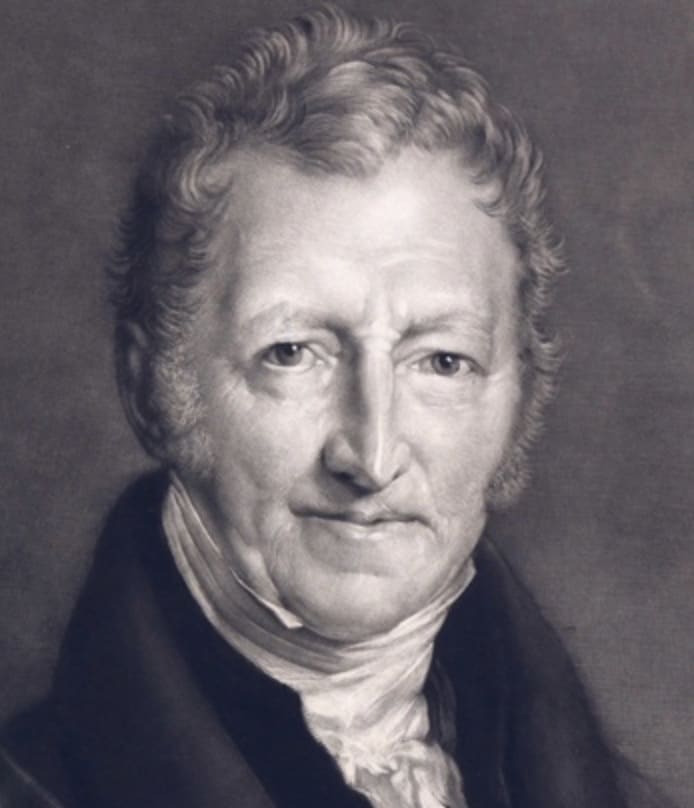
Thomas Robert Malthus was born on February 13, 1766, at Westcott in Surrey, England, to a prominent family. He majored in classics at Cambridge University, and graduated with honors in 1788, having won prizes in Greek and Latin. He also achieved Ninth Wrangler status on the prestigious Mathematical Tripos competition. Thomas was awarded his Masters degree in 1791 and gradually shifted his focus from religious studies to economics and social science.
In 1798, Malthus, wrote the treatise, An Essay on the Principle of Population, warning that famine, starvation and poverty were inevitable, because the human population grows geometrically (exponentially) while the food sources grow only arithmetically (linearly). He argued that the only way to avoid widespread poverty and starvation, would be to delay marriage, practice sexual restraint and reduce family size. Merely providing social assistance to the poor would not solve the problem, because it does not address the root cause–population growth.
Malthus further asserted that advances in technology dedicated to increasing the food supply would be insufficient to cope with the demand exerted by the exponentially growing population, and the inevitable societal collapse. This led to his conclusion that population control, rather than social welfare would be the only way to avoid the calamity. However, as the Industrial Revolution unfolded, it became evident that the mechanisms for increasing the food supply had the potential to increase production of resources at an exponential rate, suggesting that Malthus was excessively pessimistic. Subsequently, many social scientists challenged his premise, dismissing it as the Malthusian trap.
In the years following the publication of his famous paper Malthus refined his theories, and became a respected public figure in academic circles. His work influenced Charles Darwin’s thinking as the great scientist formulated his theory of natural selection. In 1805, Thomas Malthus was appointed Professor of History and Political Economy at the East India Company College, where he lectured on economic theory and population dynamics. During the next two decades, he continued his teaching and research, refining his economic theory on population and resource distribution, culminating in his 1820 publication Principles of Political Economy.
Thomas Malthus died on December 23, 1834, at the age of 68, leaving behind a legacy that stimulated discussions and research about the management of population growth and the sustainability of our species in the long term.
